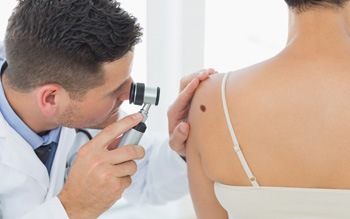
According to American Association for Cancer Research, melanoma is most commonly found in men than in women and among those with a fair complexion. The condition typically develops in a mole or suddenly appears as a new dark spot on the skin. The deadliest form of skin cancer, melanoma should be treated early as later stage treatments are not usually effective. In addition to fair skin, factors that increase risk of melanoma include:
- Exposure to natural sunlight or artificial sunlight over long periods of time
- A history of sunburn
- A family history of melanoma
- A weakened immune system
- Having many moles or unusual moles
Here is some advice from the Mayo Clinic to protect your skin and minimize your risk of skin cancer:
- Wear sunscreen whenever you step out. Choose a product that contains no harmful chemicals and offers proper protection against UV rays.
- Avoid overexposure to sun rays and especially, going out during the middle of the day. Dress suitably when you are out in the sun for a long period. Wear a hat, sunglasses, and sun-protective clothing.
- Avoid tanning beds because the ultraviolet light from tanning beds can cause skin cancer and premature skin aging.
- Examine your skin for changes in existing moles, freckles, bumps and birthmark as well as new skin growth.
This is the best time to support the battle against skin cancer. To learn how you can get involved in initiatives to prevent the spread of skin cancer, visit www.skincancer.org/get-involved/skin-cancer-awareness-month.
